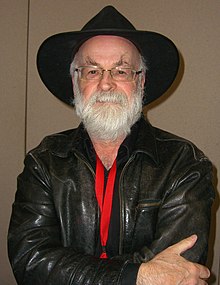- 0
Cracking the Code: Advanced Strategies in Interview Training for Recruiters

Image Source: Google
Interview training is a crucial aspect of the recruitment process, and for recruiters looking to take their skills to the next level, mastering advanced strategies can make all the difference in finding the best candidates for the job. In this article, we will explore some advanced techniques to help recruiters crack the code when it comes to conducting interviews.
One of the key strategies in interview training for recruiters is to go beyond the standard questions and delve deeper into the candidate's experience and qualifications. This means asking probing questions that require candidates to provide examples of specific situations where they have demonstrated certain skills or qualities. By doing so, recruiters can gain a more comprehensive understanding of a candidate's capabilities and assess their fit for the role more effectively. You can navigate to Mitsuoka & Company to get more details about the interview training for recruiters.
Another important aspect of advanced interview training is honing the ability to read between the lines. This involves not only listening to what candidates say during an interview but also paying attention to their body language, tone of voice, and overall demeanor. Being able to pick up on subtle cues can provide valuable insights into a candidate's personality, level of confidence, and overall suitability for the position.
Furthermore, advanced interview training for recruiters should include techniques for building rapport with candidates. Establishing a connection with candidates early on in the interview process can help put them at ease and encourage them to open up more during the conversation. Recruiters can achieve this by showing genuine interest in the candidate's background and experiences, actively listening to their responses, and engaging in conversation in a friendly and professional manner.
In addition, recruiters can benefit from incorporating behavioral interviewing techniques into their training. This approach involves asking candidates to provide specific examples of how they have handled certain situations in the past, allowing recruiters to assess how they are likely to perform in similar situations in the future. By focusing on behaviors rather than hypothetical scenarios, recruiters can gain a more accurate understanding of a candidate's skills and competencies.
Another advanced strategy in interview training for recruiters is to practice active listening. This means not only hearing what candidates are saying but also paying attention to the underlying message behind their words. By listening attentively and asking follow-up questions to clarify or expand on certain points, recruiters can demonstrate that they are fully engaged in the conversation and committed to understanding the candidate's experiences and motivations.
Moreover, incorporating role-playing exercises into interview training can help recruiters sharpen their skills and improve their confidence in conducting interviews. Role-playing scenarios can simulate real-life interview situations and allow recruiters to practice different techniques, such as asking challenging questions, handling difficult candidates, and managing unexpected responses. By rehearsing these scenarios in a safe and controlled environment, recruiters can build their expertise and feel more prepared when facing similar situations in actual interviews.
Finally, advanced interview training for recruiters should also include strategies for evaluating candidates objectively and making informed hiring decisions. This involves setting clear criteria for assessing candidates based on their qualifications, skills, experience, and cultural fit with the organization. Recruiters should also be trained to avoid biases and stereotypes that may influence their judgment and focus on selecting the best candidate based on merit and potential for success in the role.
In conclusion, mastering advanced strategies in interview training can help recruiters elevate their skills and become more effective in identifying top talent for their organizations. By going beyond the basics and incorporating techniques such as probing questions, reading between the lines, building rapport, and practicing active listening, recruiters can gain a deeper understanding of candidates and make more informed hiring decisions. With the right training and practice, recruiters can crack the code when it comes to conducting interviews and find the best candidates to drive their organization's success.
